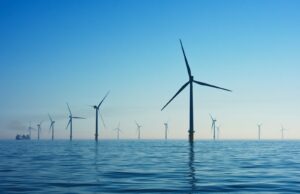The government has announced plans to spend £90m to reduce carbon emissions for households and businesses.
In an announcement made today (February 18), Kwasi Kwarteng, minister for business, energy and clean growth, has revealed plans to create two of Europe’s first-ever low-carbon hydrogen production plants.
This will help to move industrial concrete and glass production away from fossil fuels and onto renewables. Concrete production is currently responsible for 8% of global CO2 emissions.
Plans to harness offshore wind off the Grimsby coast which will then be used to power electrolysis and produce hydrogen, which the government says will be hugely important for the future of industry and transport.
The remaining £20m will be used to fund projects aimed at cutting household emissions through 10 UK-wide local ‘smart energy’ projects.
As a result, over 25,000 people could have their homes powered by local renewable energy by 2030, this could lead to their energy bills being reduced by as much as half.
The funding will also be used to assist plans to transform a coal-fired power station in Rugley, Staffordshire to a sustainable village of 2,300 homes.
The coal plant closed in 2016, resulting in the loss of 150 jobs. Owner of the plant, Engie laid out plans in 2018 to build a combination of houses and commercial buildings on the 139-hectare site.
Thanks to government funding these plans will go ahead, with residents in the area benefiting from thermal storage units instead of traditional gas boilers, enabling them to draw, store and heat their homes with geothermal energy from local canals.
Kwasi Kwarteng said: ‘Cleaning up emissions from industry and housing is a big challenge, but today’s £90m investment will set s on the right path as we develop clean technologies like hydrogen.
‘This is an important part of our world-leading efforts in eliminating our contribution to climate change by 2050 while also growing our economy, creating up to 2 million green-collar jobs across the country by 2030.’
Photo Credit – Pixabay
















